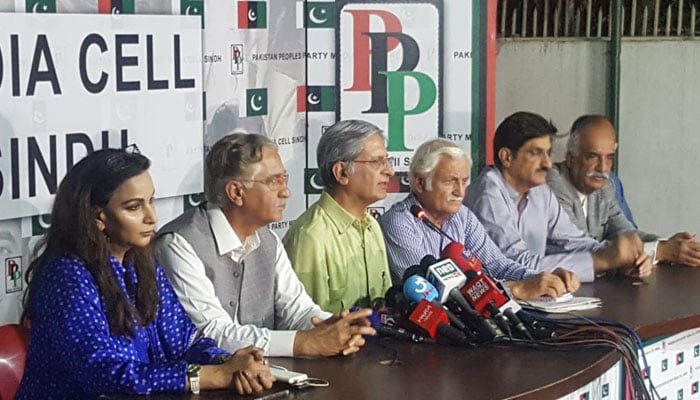The incentives for shunning of violence and militancy and for re-integration have to be made greater than the continuation of militancy and anti-societal discourse and practices, the NISP 2018-2023 asserts.
It refers to the successful formulation of programmes for re-integration and of reconciliation pursued by many Muslim countries including Indonesia and Bangladesh, and notes that key priority areas in this regard have to be the worst affected areas due to insecurity and terrorism; it is strange to cited Bangladesh where pro-Pakistan Jamaat-e-Islami leaders were convicted or hanged.
In this regard, the policy acknowledges that formerly Fata region, Balochistan, and areas of KP and Karachi have to be paid particular attention. Due to social and political contestation, these areas have been hotbeds of unrest and targets of subsequent security operations.
An incentive structure to provide a way out to militants stuck in the cycle of violence, de-radicalisation and rehabilitation programmes and an outright ban on the use of violence for achieving political goals are key to improve security, reads the policy document.
Efforts will be made to build consensus on offering incentives for militants under clear and transparent terms to shun violence. For this purpose the following reforms shall take place:
A mechanism will be developed to review cases of militants who agree to cooperate with the law enforcement agencies.
De-radicalisation and rehabilitation programmes will be used to enable former militants to join the mainstream. Professionals and moderate scholars will be engaged for the said purpose.
Alternative livelihoods either by providing jobs, vocational training or other means will be provided to former militants once they are certified not being a security risk, while the children of suspected terrorists under custody will be taken care of.
No armed group must be allowed to operate a political wing and participate in electoral processes and vice versa. National Counter Terrorism Authority (NACTA) will compile data on Pakistani individuals linked with terror organisations involved in war theatres abroad. Appropriate action will be taken to deal with returning fighters.
The policy aims to protect the life, property and fundamental rights of the citizens of Pakistan by establishing the rule of law. To this effect, it recognises that this requires enforcement of state laws/regulations in letter and spirit through an effective coordination between various constituents of the criminal justice system.
Violation of human rights can become a crucial driver for extremism and radicalisation, and it is, therefore, essential to establish the rule of law and deliver justice, the Policy observes.
It refers to the successful formulation of programmes for re-integration and of reconciliation pursued by many Muslim countries including Indonesia and Bangladesh, and notes that key priority areas in this regard have to be the worst affected areas due to insecurity and terrorism; it is strange to cited Bangladesh where pro-Pakistan Jamaat-e-Islami leaders were convicted or hanged.
In this regard, the policy acknowledges that formerly Fata region, Balochistan, and areas of KP and Karachi have to be paid particular attention. Due to social and political contestation, these areas have been hotbeds of unrest and targets of subsequent security operations.
An incentive structure to provide a way out to militants stuck in the cycle of violence, de-radicalisation and rehabilitation programmes and an outright ban on the use of violence for achieving political goals are key to improve security, reads the policy document.
Efforts will be made to build consensus on offering incentives for militants under clear and transparent terms to shun violence. For this purpose the following reforms shall take place:
A mechanism will be developed to review cases of militants who agree to cooperate with the law enforcement agencies.
De-radicalisation and rehabilitation programmes will be used to enable former militants to join the mainstream. Professionals and moderate scholars will be engaged for the said purpose.
Alternative livelihoods either by providing jobs, vocational training or other means will be provided to former militants once they are certified not being a security risk, while the children of suspected terrorists under custody will be taken care of.
No armed group must be allowed to operate a political wing and participate in electoral processes and vice versa. National Counter Terrorism Authority (NACTA) will compile data on Pakistani individuals linked with terror organisations involved in war theatres abroad. Appropriate action will be taken to deal with returning fighters.
The policy aims to protect the life, property and fundamental rights of the citizens of Pakistan by establishing the rule of law. To this effect, it recognises that this requires enforcement of state laws/regulations in letter and spirit through an effective coordination between various constituents of the criminal justice system.
Violation of human rights can become a crucial driver for extremism and radicalisation, and it is, therefore, essential to establish the rule of law and deliver justice, the Policy observes.
http://www.shiitenews.org/index.php/pakistan/item/34675-new-internal-security-policy-seeks-to-give-clean-chit-to-takfiri-terrorists



